Sound and light energy -> change
Change in Science
In science, the concept of change refers to any alteration in the physical or chemical properties of an object or system. Change can occur in various forms, such as changes in state (solid, liquid, gas), changes in shape or size, changes in temperature, and changes in composition.
Types of Changes
There are two main types of changes in science: physical changes and chemical changes.
Physical Changes
A physical change involves a change in the appearance or state of a substance, without altering its chemical composition. Examples of physical changes include melting ice, boiling water, dissolving sugar in water, and crushing a can.
Chemical Changes
A chemical change, also known as a chemical reaction, involves the rearrangement of atoms to form new substances with different properties. Examples of chemical changes include burning wood, rusting of iron, digestion of food, and baking a cake.
Factors Affecting Change
Several factors can influence the rate and extent of change, including temperature, pressure, concentration, and the presence of catalysts. Understanding these factors is crucial in predicting and controlling changes in various scientific processes.
Study Guide
- Define change in the context of science.
- What are the two main types of changes in science? Provide examples of each.
- Explain the difference between physical changes and chemical changes.
- Discuss the factors that can influence the rate and extent of change in scientific processes.
- Provide examples of everyday phenomena that demonstrate physical and chemical changes.
[Change] Related Worksheets and Study Guides:
.◂Science Worksheets and Study Guides Fifth Grade. Sound and light energy
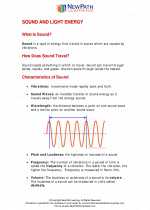
 Activity Lesson
Activity Lesson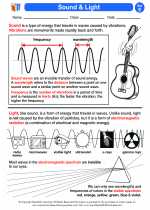
 Worksheet/Answer key
Worksheet/Answer key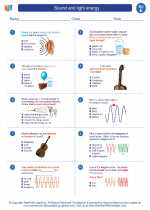
 Worksheet/Answer key
Worksheet/Answer key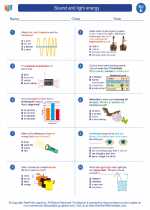
 Worksheet/Answer key
Worksheet/Answer key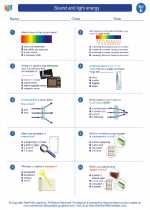
 Worksheet/Answer key
Worksheet/Answer key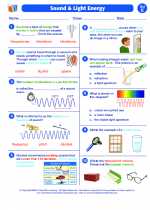
 Vocabulary/Answer key
Vocabulary/Answer key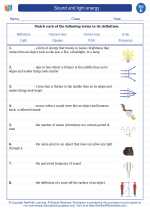
 Vocabulary/Answer key
Vocabulary/Answer key
